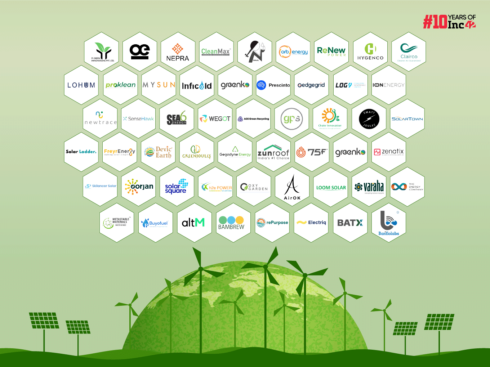SUMMARY
The latest edition of The Dialogue, organised by Inc42 in association with Ikigai Law, will discuss the impact of the proposed amendments to the intermediary guidelines on startups
The roundtable will allow businesses and startups to understand the amendments and resolve their concerns
The event will be held in Bengaluru on November 29, 3 PM onwards at Taj, MG Road
One of the biggest debates these days in online content and social media is content regulation and India’s proposed guidelines for intermediaries or content platforms are likely to have a deep impact on tech startups as a whole.
As social media gains prominence, issues such as fake news, piracy, online hate speech, obscene content and user privacy have also come to the fore. Following the rise in such cases, the Ministry of Electronics and Information Technology (MeitY) made amendments to the intermediary guidelines under the Information Technology Act, 2000 in December last year.
Intermediaries in India prize their safe harbour protection, and with good reason. Without safe harbour protection, intermediaries run the risk of being penalised for every activity that takes place on their platforms, whether or not they have control over them.
This is not to say that intermediaries have no obligations under the law. In order to avail the safe harbour protection, all intermediaries must comply with the due diligence guidelines issued under Section 79 of the IT Act, amongst other things. In December 2018, MeitY released the draft intermediary rules, which propose amendments to these guidelines.
These amendments threaten to dilute the safe harbour protection for intermediaries. If introduced, they will greatly increase the regulatory burdens on intermediaries. Moreover, they will pose serious risks to the fundamental rights of free speech and privacy.
For instance, the draft rules require intermediaries to proactively monitor the content on their platforms, to identify and remove unlawful information. If introduced, these rules could result in constant surveillance of users by platforms and excessive censorship.
Tuhina Joshi of Ikigai Law, explains that this requirement “fetters the fundamental right to free speech, since it allows private companies (the intermediaries) to determine what is ‘unlawful content’ and block such content independently, without any judicial scrutiny.”
It doesn’t spell good news for intermediaries either, who will have to devote a substantial amount of time, money and resources to monitor all the content on their platforms. In many cases, such monitoring may be impossible simply because of the amount of information that is transmitted on a daily basis. Intermediaries that are unable to comply with this requirement will lose their safe harbour requirements, making them vulnerable to civil and criminal liability for any user-led unlawful activity on their platforms, even if such activity is out of their control.
Adding to the list of obligations on intermediaries under the new guidelines is the extremely short 24-hour timeline to take down content in response to government notifications and court orders. The existing due diligence guidelines, i.e., the Information Technology (Intermediaries guidelines) Rules, 2011 only require intermediaries to acknowledge takedown complaints within 36 hours, and to takedown content within one month from the date of receipt of the response.
The draft rules also require any intermediary with over 50 Lakh users in India to have a permanent registered office and local presence in India. There is no such requirement under the existing due diligence guidelines i.e. the Information Technology (Intermediaries guidelines) Rules, 2011, for Indian intermediaries.
Given the many concerns raised by these amendments, it comes as no surprise that they have been met with significant pushback from industry and startups, many of whom feel that the new rules would interfere with their business operations, ease of doing business and the spirit of innovation and entrepreneurship in the country. MeitY is presently re-drafting the rules, in an effort to balance user privacy and security. The final guidelines are due to be announced by January 2020.
In the meantime, what is the way forward for startups? What should startups be doing that user and government concerns are satisfied while protecting their safe harbour?
The draft Information Technology [Intermediaries Guidelines (Amendment) Rules], 2018 (“draft Intermediary Rules”) are generating a lot of debate, criticism, and feedback, both in the public domain, as well as in courts. If introduced in their current form, these rules will have a far-reaching impact on the treatment of all intermediaries in India — including social media platforms, news aggregators, internet service providers, fintech players and audio/video streaming services.
Inc42, along with Ikigai Law, is initiating a dialogue on the impact of the draft Intermediary Rules on startups. ‘The Dialogue: A Roundtable Discussion’ will provide a platform to make your voice heard by those who make the policy and play an active role in shaping how these rules will affect the Indian startup ecosystem.
Being held at Taj, MG Road, Bengaluru, ‘The Dialogue’ will help startups and tech industry leaders understand how the draft Intermediary Rules impact their businesses. The Dialogue is for startups, social media companies, messaging platforms, video streaming platforms, gaming platforms, and founders who want to be on the leading edge of regulatory changes, to minimise business impact.
‘Local Incorporation’: The Challenge For Startups
One of the most significant benefits of the internet is that it has made processes and operations simpler for businesses, startups and consumers, and lowered the entry barriers for MSMEs. The requirement to have local incorporation for companies takes this advantage away, especially for early-stage startups and bootstrapped companies, for whom establishing a brick and mortar office in India might not be a viable option. It may also result in reciprocal actions by other countries, such that Indian companies wishing to serve overseas markets may be required to set up offices in those jurisdictions, which will impede the growth of startups.
“Setting up offices in such jurisdiction should be a business decision rather than a regulatory requirement. Also, multiple offices or requirements will increase the cost of operations and can be potentially a threat to our thriving startup culture,” Faisal Farooqui, founder and CEO, Mouthshut.com told Inc42.
What Do The Amendments Mean For Content Startups, News Aggregators
The requirements of proactive content filtering will force all content aggregation platforms to take down any controversial content.
“Monitoring every posting will result in huge costs since most startups are lean and try to maintain a neutral stand on contentious posts. Also, takedowns is a matter of freedom of speech and expression and as such, it is the job of the judiciary to decide what is not free speech. Platforms should not be subjected to perform this task of the judiciary,” added Farooqui.
“Given that such technologies cannot be 100% accurate, the liability arising out of the presence of unlawful content can increase legal risks for platforms, diluting the very benefit the safe harbour protection intends to provide,” Ikigai’s Joshi said.
Speaking about the need to take down content flagged as objectionable, Dibyojyoti Mainak, the consultant general counsel for gaming startup Mobile Premier League, said, “In addition to the compliance cost-related entry barriers this would create in the content platform business, we need to evaluate the very real possibility that this would require private bodies to become de facto regulators of speech and expression. Remains to be seen whether the new guidelines can survive a constitutional challenge.”
24-Hour Takedowns: Are They Feasible And Necessary?
The draft guidelines provide intermediaries with a very short time period to remove unlawful content, which will be extremely difficult for startups to comply with. “Such short timelines may result in excessive takedowns, and clamp down on the freedom of speech and expression. In many cases, it is also technically impossible for companies to takedown content within 24 hours, despite the best intentions. It would be unreasonable for companies to lose their safe harbour if they are unable to comply with the 24-hour timeline in such cases,” Joshi added.
Will Content Platforms Be Able To Comply?
Given the concerns associated with the draft intermediary rules, many startups may not be able to continue providing their services in India, for fear of losing their safe harbour protection and inviting criminal and civil penalties. The rules could also reduce investor appetite and confidence in India’s booming content and media sector since the ease of doing business in India will be significantly impacted.
The final form of the intermediaries rules will play a big role in shaping the future of the economy’s digital economy. But this is the crucial time where the stakeholders can make their voice heard, and this is the time for startups, investors and stakeholders to join The Dialogue and shape the way forward for Indian intermediaries.



























